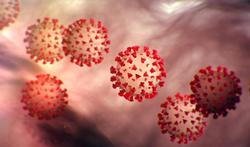What is the incubation period?
The incubation period of the coronavirus varies from 2 to 12 days. For the security, 14 days will be taken.How is an infection diagnosed?
Anyone who suspects that he or she is infected can ask the GP by phone to come to home so that no infections are possible in the waiting room. A sample is taken using a swap with a cotton swab, in the throat or nose, which is then examined in a lab. If you test positive, you should be sick at home and have as little contact as possible with others. A hospitalization is only necessary if the lung problems worsen.Do the mouth masks help?
The simple (paper) mouth caps, which many people use in China, for example, do not protect the wearer from the virus. If you're infected yourself, it does help to prevent you from infecting others. Medical staff wear professional mouth caps, and they also only help if closed very well over nose and mouth and if changed regularly.How can you prevent your own spread?
By regularly washing your hands with soap. Experts recommend not giving people a kiss for the time being and not getting too close. Sneezing and coughing are best done in a paper tissue that is thrown away immediately afterwards. If you don't have paper tissues, you'd better shield your mouth and nose with your elbow than with your hands.How deadly is the coronavirus?
A current mortality rate of around 2.4% currently applies, but that's because of Wuhan's death rate (4%). Without ground-zero, the death rate drops to 0.4 percent. The lung disease SARS was much more dangerous, with a mortality rate of 9.6 percent.How is it treated?
Pending a specific vaccine or drug, patients should simply sweat it out. possibly with painkillers.Preventing coronavirus spreading is actually surprisingly simple
Researchers at the Massachusetts Institute of Technology have shown that a virus would spread much more difficult if we washed our hands a little more often and thoroughly.Good hand hygiene is vital
"Seventy percent of people who go to the bathroom then wash their hands," says researcher Christos Nicolaides. "The other thirty percent don't. And of the people who do wash their hands, only 50% do it correctly. "Others rinse briefly with some water and do not use soap or wash their hands for the recommended fifteen to twenty seconds." However, good hand hygiene would bear fruit in the fight against epidemics such as the coronavirus. If 60% of all air travelers have clean hands, the global spread of diseases would fall by almost 70%. For example, the report of the study, published in the journal Risk Analysis, can be read.see also: Protect yourself from infections: that's how you wash hands correct




